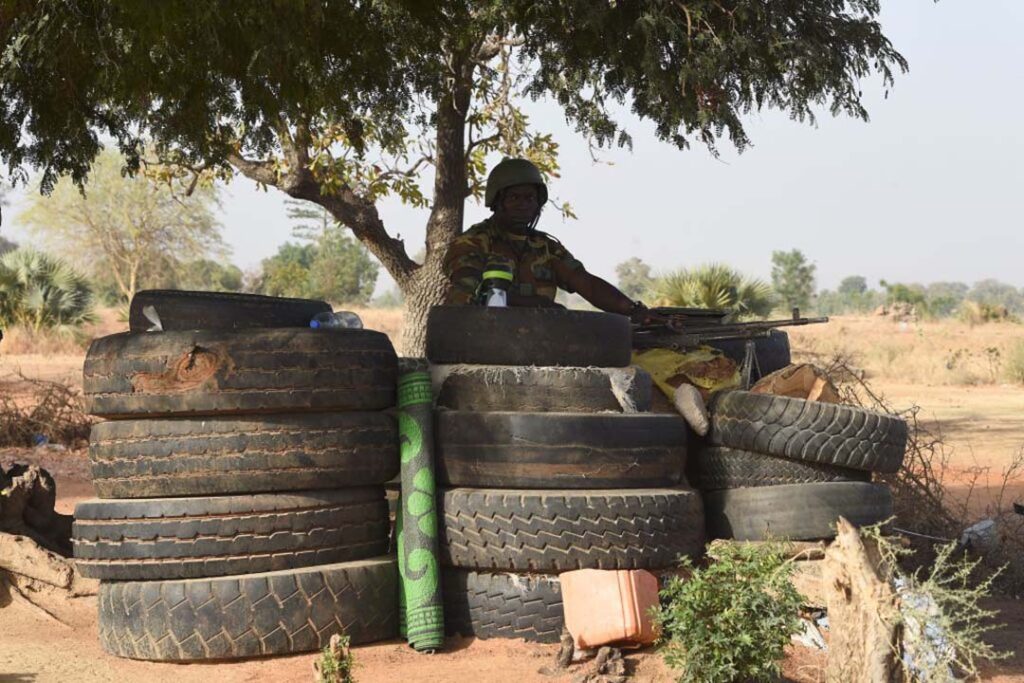ADF STAFF
Increasing attacks in northern Togo have targeted civilians and military personnel — yet another sign of Sahel terror groups progressively expanding and threatening coastal West Africa.
Togo declared a “state of security emergency” in its northern border Savanes region on June 13, 2022, in response to the first deadly terrorist attack in the country’s history in early May.
“It [the state of emergency] will enhance the speed of decision making and facilitate greater agility for public services and defense and security forces,” the government said in a statement.
Minister of Communication Akodah Ayewouadan said the state of emergency will last for three months and could be extended. He said the military has been given broad authority to combat the armed groups and protect civilians.
“The state of emergency will allow the administration, the defense and security forces to have a little more flexibility in their activities, to carry out identity checks a little more frequently, to carry out home checks, to prohibit certain activities,” he explained. “As we know, the state of security emergency will lead to a weakening of individual and collective freedoms.”
Jama’at Nasr al-Islam wal Muslimin (JNIM), a Mali-based alliance of insurgents linked to al-Qaida, claimed the first attack in May.
JNIM continues to push from Burkina Faso’s porous border into Benin, Côte d’Ivoire, Ghana and Togo.
More raids have ensued, and people are fleeing to nearby cities.
“People are leaving their villages en masse,” Arzoume Sambiani, the mayor of a part of Kpendjal district, said in a statement on July 18.
Sambiani said civilians should avoid traveling at night, but he urged people to return to their villages and resume their normal activities.
On the night of July 14, JNIM fighters killed at least 14 people in attacks on two Togolese villages in the prefecture of Kpendjal, a region close to the border with Burkina Faso.
Ayewouadan confirmed the attack to a local radio station.
“Clearing operations are currently underway,” he said, “and we fear that there are victims.”
Fear is rising in the region’s largest city, Dapaong, which also is seeing an influx of displaced people fleeing violence in Burkina Faso.
Military operations around Dapaong have been underway since mid-May and have increased since the state of emergency was declared.
Residents say the military conducts patrols nightly.
“The arrival of the military was noticed around mid-May, just after the jihadists struck in the north,” Emmanuel Batie, a supermarket and restaurant manager in Dapaong, told the AfricaNews website. “They arrived, and since then we have noticed the presence of the military all over the city. You can see them everywhere.”
Sahel terror cells have been moving toward the Gulf of Guinea for years, according to William Assanvo, a Côte d’Ivoire-based researcher with the Institute for Security Studies (ISS).
“All coastal countries are exposed to this threat, at least the countries which border Burkina Faso and Mali,” he told Radio France Internationale.
In Dapaong, motorcycle taxi driver Kanfitine Naniga said the violence is having a profound impact on local commerce.
“We are too afraid with the situation,” he told AfricaNews. “We see clients, we are afraid to take them, because at that moment we don’t know who is who.
“Before when there was security, we can go out, we can work at least 5,000 to 6,000 [CFA francs]. But today, with the insecurity, it’s really not good. It’s hard to bring home 1,000 francs.”
Togo is part of the Accra Initiative, a military alliance of coastal countries that has conducted joint operations to prevent terrorism from spilling from the Sahel and Nigeria into West Africa’s coastal nations and to address organized crime in border areas.
With the terrorists making a concerted push south, Togo also created the Inter-ministerial Committee for the Prevention and Fight Against Violent Extremism (CIPLEV).
According to CIPLEV official Ouro-Bossi Tchacondoh, the group focuses on out-of-work and disaffected youth who often are targets of insurgent recruiting. CIPLEV interfaces with young people and sends information, complaints and requests to a committee of government ministries for analysis.
Jeannine Ella Abatan, a Sahel researcher with the ISS, said she fears the attacks are the beginning.
“This already shows the capacity of violent extremist groups to actually stage attacks in those countries,” she told Voice of America. “[Not only] to instrumentalize the porosity of borders, but [also] to go to those countries and also pose explosive devices.”

